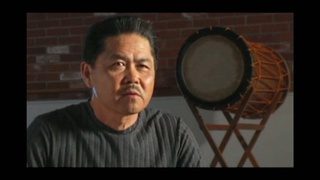Interviews
Deciding to come to America
In Tokyo, a lot of American soldiers going around there then. And I look at them, "those guys beat us...those guys." Those kind of feeling I had. I never learned English, 'cause I had a lot of chance to learn going to school if those kind of thing opening up all over, so I have a chance to learn, but I had ..ah, I don't wanna do that.
Then never thinking in my mind to go to America. Wish more like... the other way around, I kind of hate America because they beat us, then, but as times go on, then I met Mitsui, we marriage, after the Mitsui kept saying how America is better life than Japan, see.
That same time, the Korean War almost ended. Then soon the Korean War situation comes, my printing business, all economy same way, slowed down. Even my printing business wasn't doing too good. So my income is more less now. So I kinda thinking making some...thinking mind, start to twisting my mind a little bit. Hey, may be not too bad. Michi says so, and she really wanna go back there, so. May be I better think of it. Then I start talking, thinking a lot of, I think quite a bit, you know -s hould we do or not. Then finally I find, "O.K. if I stay this way, I'm not doing too good, either." say so. Might as well, let's change the life to see how American life gonna be. If I'm not gonna make it, I can come back to Japan. So, let's go try.
That's why I decide to come up. Kind of gambling decision, you know, 'cause I don't have nothning...any particular idea what to do in America. It's just try to go see it. If it's gonna suit me, I'm gonna try. But if not, I'm gonna come back.
Date: February 2, 2012
Location: California, US
Interviewer: Chris Komai, John Esaki
Contributed by: Watase Media Arts Center, Japanese American National Museum












